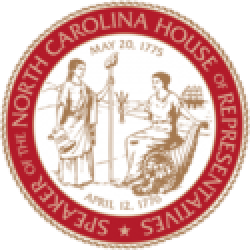Raleigh, N.C. – The North Carolina House Committee on Regulatory Reform approved additional reforms on Tuesday to streamline the state’s rulemaking process, simplify bureaucratic procedures and update government regulations facing citizens and businesses across the state.
Senate Bill 16 Regulatory Reform Act of 2017 embraces recommendations from the Joint Administrative Procedures Oversight Committee, legislative proposals and suggestions from state policy stakeholders. The legislation is part of a continued effort by House Republicans to eliminate and improve excessive, duplicative and onerous regulations that burden North Carolinians and the state’s economy.
“The Regulatory Reform Act of 2017 continues House Republicans’ commitment to improving the state’s regulatory process to better protect North Carolinians and prevent unintended consequences of bad policies,” said Rep. Chris Millis (R-Pender).
“Reducing red tape remains a top priority of North Carolina House Republicans. Fixing broken bureaucratic processes and eliminating bad policies encourages economic growth and allows legislators to focus on important rules that are necessary and have a major impact on our state.”
Senate Bill 16 removes hurdles for North Carolinians to petition for judicial review of regulations by eliminating the requirement that a person or party petition an agency through the rules review process before seeking relief in court.
House Regulatory Reform Committee Chairman John Bradford (R-Mecklenburg) said that streamlining the procedure for citizens to challenge agency regulations in court empowers taxpayers with a louder voice in the enforcement of state policies:
“Improving the periodic review and public input process for state regulations is a significant part of House Republicans’ commitment to rulemaking reforms this decade,” Bradford said.
“We want to get government out of the way of businesses so the economy can thrive.”
Senate Bill 16 ensures that all objections to agency rules are recorded as public comment, expanding the impact of citizens and businesses who wish to file on-the-record complaints about state regulations.
The regulatory reform legislation expands public notice requirements of proposed rule changes to keep North Carolinians more informed and allow citizens time to submit comments and have input on the regulatory process.
“This regulatory reform bill enhances rulemaking transparency to ensure stakeholders have proper time to respond to agency meetings and policies proposed in the bureaucratic process,” said Rep. Dennis Riddell (R-Alamance).
“North Carolina would provide a one-stop-shop for businesses and families to review state regulations with the improved public notice process in Senate Bill 16.”
Senate Bill 16 would ease regulatory hurdles facing small business in acquiring stop-loss health insurance for their employees, conforming North Carolina law with all of its regional neighbors who do not specify the number of employees required to qualify for stop-loss health insurance coverage. Currently, business that employ 25 or fewer people
“Reducing this regulatory hurdle for small businesses provides health coverage flexibility for their employees, who will have additional options to self-insure as premiums are expected to continue rising under Obamacare,” Millis said.
More on Senate Bill 16
Senate Bill 16 also helps agencies prioritize critical reports to ensure impactful regulations receive the highest scrutiny from agency officials and the legislature.
It reforms regulations that oversee state agencies, bed and breakfasts, alarm system salespeople, pet kennels, vehicle salvage dealers, and businesses that provide automatic customer contract renewals.
The bill also clarifies stormwater laws and eases duplicative requirements on coastal redevelopment of residential projects.
Senate Bill 16 further proposes legislative studies of regulatory barriers in coastal economies, electrical safety for swimming pools, the use of ungraded lumber, the frequency of vehicle inspections, and mediation of disputes between local governments and property developers.
North Carolina Regulatory Reform Since 2011
Senate Bill 16 is the second regulatory reform proposal of the 2017 North Carolina House session. The Regulatory Reform Act of 2016-17 passed the House on April 6, 2017.
2011 HB 268 Reclaimed Water Rules/Storm Debris Cleanup
2011 HB 209 Amend Solid Waste Financial Assurance Requirements
2011 HB 609 Promote Water Supply Development/Efficiency
2011 HB 952 State Air Toxics Program Reforms
2011 HB 45 Accelerate Cleanup of Industrial Properties
2011 HB 119 Amend Environmental Laws 2011
2012 HB 953 Amend Environmental Laws 2
2013 HB 74 Regulatory Reform Act of 2013
2014 SB 734 Regulatory Reform Act of 2014
2015 HB 44 Local Government Regulatory Reform 2015
2015 HB 765 Regulatory Reform Act of 2015
2017 SB 131 Regulatory Reform Act of 2016-17


